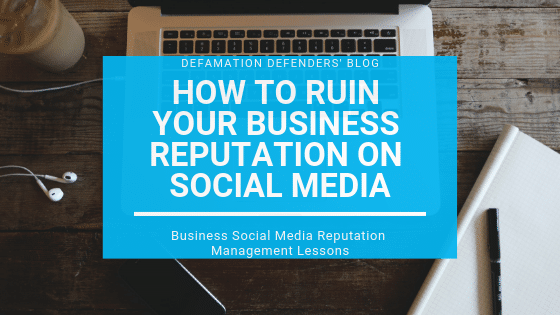Social media has become a cornerstone of communication. Platforms like Facebook allow users to share their thoughts, experiences, and opinions with a vast audience instantly. However, this freedom can sometimes lead to misuse, raising the question: Can you sue someone for posting on Facebook about you? The short answer is yes, but it comes with complexities and challenges. This article explores the legal landscape of social media defamation, the steps involved in suing someone for harmful Facebook posts, and the possible outcomes.
Table Of Content
Understanding Social Media Defamation
Defamation is a false statement presented as a fact that injures a party's reputation. On social media, defamation can occur in the form of libel (written statements) or slander (spoken statements). Facebook posts, being written and often widely shared, typically fall under libel. To sue someone for defamation on Facebook, you must prove that the statement is false, damaging, and made with at least negligence regarding its truthfulness.
Related Article: What is the difference between Libel, Slander and Defamation
Legal Basis for Suing Over Facebook Posts
To build a successful defamation case, several legal elements must be established:
1. False Statement: The posted information must be false. Truthful statements, no matter how damaging, are not considered defamatory. }
2. Publication: The statement must be published, meaning it was shared with at least one other person besides the subject.
3. Injury: The statement must cause injury to the subject’s reputation, leading to damages such as lost job opportunities or social stigma.
4. Fault: The plaintiff must prove that the statement was made with negligence or actual malice. Public figures must show the statement was made with actual malice, meaning the poster knew it was false or showed reckless disregard for the truth.
Jurisdiction and Venue Challenges
Jurisdiction refers to a court's authority to hear a case, and venue is the location where a case is tried. In the context of Facebook posts, jurisdiction can be tricky due to the platform’s global reach. Typically, a case can be filed where the plaintiff resides, where the defendant resides, or where the defamatory statement was published and read. Courts have to determine if they have personal jurisdiction over the defendant, especially if they reside in a different state or country.
Steps to Sue for Defamation on Facebook
Document the Defamatory Content: Take screenshots and save any relevant posts, comments, or messages. Ensure you capture the date and time of the postings, as well as any responses or likes, which can demonstrate the reach and impact of the content.
Consult a Lawyer: Seek advice from an attorney specializing in defamation or social media law. They can help assess the strength of your case, gather evidence, and navigate the legal process.
Send a Cease and Desist Letter: Before filing a lawsuit, consider sending a cease and desist letter to the poster, demanding they remove the content and refrain from further defamatory statements. This can sometimes resolve the issue without going to court.
File a Complaint: If the issue is not resolved through a cease and desist letter, your lawyer will file a defamation lawsuit in the appropriate court. The complaint will outline your allegations, the damages you’ve suffered, and the legal basis for your claim.
Discovery Process: Both parties will exchange evidence and gather information through depositions, interrogatories, and requests for documents. This phase is crucial for building a strong case.
Trial or Settlement: The case may go to trial, where both sides present their evidence and arguments. Alternatively, the parties may reach a settlement out of court, often involving compensation to the plaintiff and an agreement to remove the defamatory content.
Defenses Against Defamation Claims
Several defenses can be used against defamation claims, including:
Truth: If the statement is true, it is an absolute defense against defamation. The burden of proof lies with the defendant to show the truthfulness of the statement.
Opinion: Statements that are clearly opinions rather than assertions of fact are generally not considered defamatory. Courts assess whether a reasonable person would view the statement as an opinion.
Privilege: Certain statements made in specific contexts, such as during judicial proceedings or legislative debates, are protected by privilege and cannot be the basis for a defamation lawsuit.
Consent: If the plaintiff consented to the publication of the statement, they cannot later claim defamation.
Public Figure Doctrine: Public figures have a higher burden of proof and must show actual malice. This doctrine recognizes that public figures are subject to greater scrutiny and criticism.
Impact of Social Media Policies and Terms of Service
Facebook’s terms of service and community standards prohibit harassment, hate speech, and false information. While these policies are designed to protect users, they do not replace legal action. However, reporting defamatory content to Facebook can result in the removal of the content and possibly the suspension of the offending account.

Case Studies and Precedents
Several high-profile cases illustrate the complexities of suing for Facebook defamation. For example, in the case of Jones v. Dirty World Entertainment Recordings LLC, the court held that the Communications Decency Act protected the website from liability for user-generated content. However, individuals can still be held liable for their posts.
Challenges and Considerations
While it is possible to sue for Facebook defamation, the process can be lengthy and costly. Plaintiffs must weigh the potential benefits against the expenses and emotional toll of litigation. Additionally, the public nature of court cases can further amplify the defamatory statements.
Social Media and the Evolving Legal Landscape
As social media continues to evolve, so does the legal framework surrounding online defamation. Courts are increasingly recognizing the impact of digital communication on reputation and are adapting traditional defamation principles to the online context.
The Role of Online Reputation Management
Beyond legal action, individuals can employ online reputation management strategies to mitigate the damage caused by defamatory Facebook posts. This can include positive content creation, search engine optimization, and engaging with the online community to restore reputation.
Conclusion
In summary, you can sue someone for posting defamatory content about you on Facebook, but it requires meeting specific legal criteria and navigating complex jurisdictional issues. Consulting with a knowledgeable attorney, documenting evidence, and considering alternative dispute resolution methods are essential steps in protecting your internet reputation. While the legal landscape continues to evolve, understanding your rights and options can empower you to take effective action against harmful online behavior.
FAQs
Can I sue for emotional distress caused by Facebook posts? Yes, you can sue for emotional distress if the posts are extreme and outrageous and cause severe emotional distress. This is often part of a larger defamation or harassment claim.
What if the defamatory posts are anonymous? Tracking anonymous posters can be challenging, but legal methods exist to uncover their identity through subpoenas and IP address tracking.
How long do I have to file a defamation lawsuit? The statute of limitations for defamation varies by state, typically ranging from one to three years from the date the statement was published.
Can businesses sue for defamatory Facebook posts? Yes, businesses can sue for defamation if false statements harm their reputation and result in financial losses.
What role does Facebook play in defamation cases? Facebook is generally protected from liability for user-generated content under Section 230 of the Communications Decency Act but can remove content that violates its policies.
Is mediation a viable option for resolving defamation disputes? Mediation can be an effective, less adversarial way to resolve defamation disputes, often resulting in quicker and less costly outcomes.



